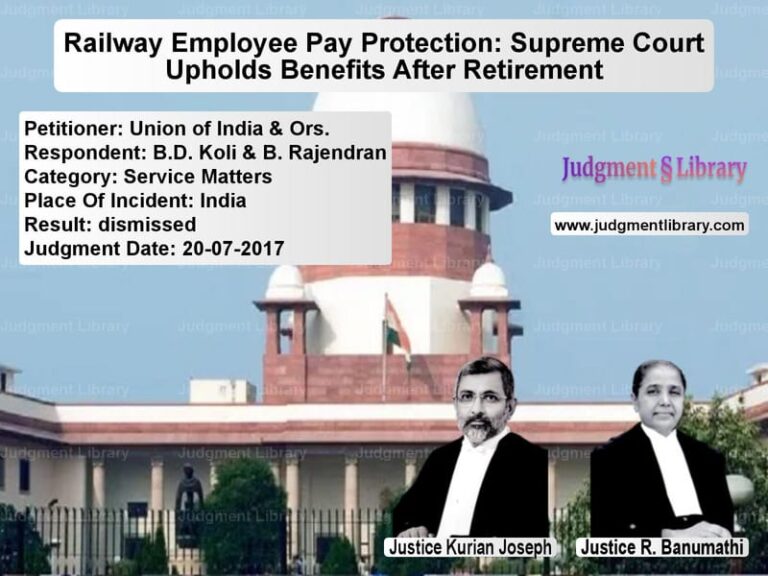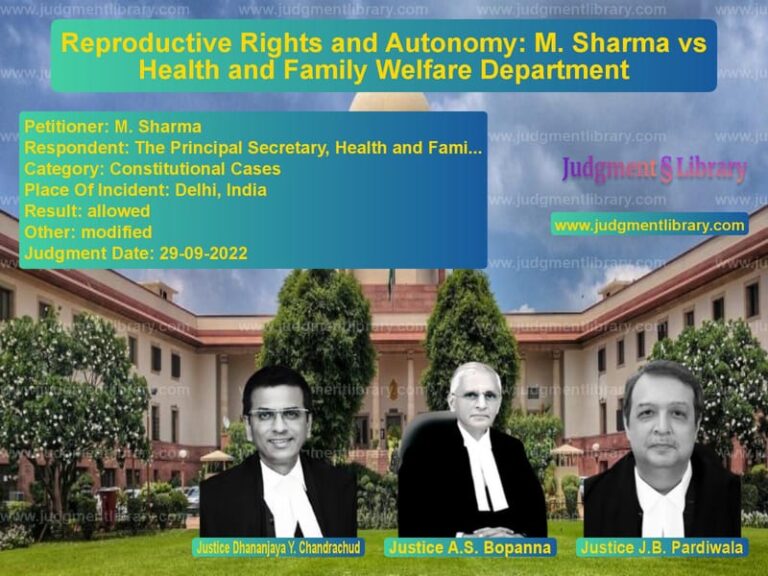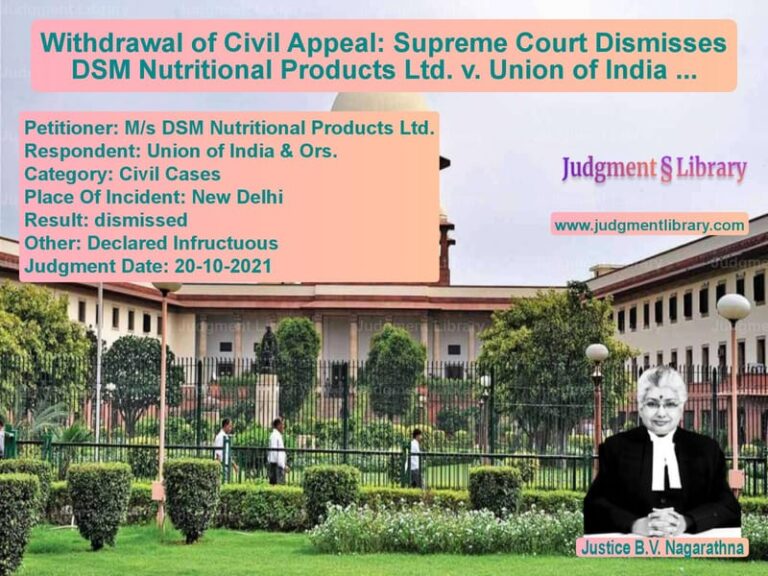Supreme Court Rules on Exim Policy and Additional Licence Benefits
The Supreme Court of India recently delivered a significant judgment in the case of Chowgule & Company Limited vs. Assistant Director General of Foreign Trade & Others, concerning the eligibility for an additional licence under the Export-Import (Exim) Policy of India. The case revolved around whether the appellant was entitled to the benefits of an additional licence for the export of processed iron ore between April 1990 and March 1991.
Background of the Case
Chowgule & Company Limited, a recognized trading house, engaged in the export of processed iron ore. Under the Exim Policy of 1988-1991, a provision for an ‘additional licence’ was available based on the net foreign exchange (NFE) earnings from exports. However, Appendix 12 of the policy excluded certain items, including ‘Minerals and Ores – Unprocessed.’
With the introduction of the Exim Policy 1990-1993, Appendix 12 was amended, and ‘Minerals and Ores’ were now classified as ineligible items for the purpose of additional licences.
The appellant, relying on the earlier policy, had entered into a contract for exporting processed iron ore but later faced rejection of their application for an additional licence by the authorities.
Petitioner’s Arguments (Chowgule & Company Limited)
- The appellant argued that it had entered into export contracts based on the Exim Policy 1988-1991, and the sudden change in the policy adversely affected their business.
- They contended that their export transactions were made in good faith, and the company had incurred financial liabilities based on the prior policy’s incentives.
- The principle of promissory estoppel should apply, preventing the government from denying them the benefits of the earlier policy.
- The appellant pointed out that other similarly placed exporters had been granted the benefits of an additional licence.
Respondent’s Arguments (Director General of Foreign Trade & Others)
- The government argued that the new Exim Policy 1990-1993 clearly excluded ‘Minerals and Ores’ from additional licence benefits.
- It was contended that Exim Policies are subject to change, and exporters must comply with the policies in effect at the time of export.
- Promissory estoppel was inapplicable in policy matters where the government has the authority to modify trade incentives.
- Just because some others had wrongly been granted benefits did not entitle the appellant to claim the same.
Supreme Court’s Observations
- The Court observed that the appellant had indeed exported the processed iron ore during the period governed by the Exim Policy 1990-1993.
- Appendix 12 of the 1990-1993 policy explicitly excluded ‘Minerals and Ores,’ making them ineligible for additional licence benefits.
- The Court emphasized that the Exim Policy governs incentives on an annual basis, and exporters cannot claim benefits retrospectively based on an expired policy.
- Regarding promissory estoppel, the Court held that policy changes in economic and trade matters are within the prerogative of the government and cannot be challenged on the basis of past commitments.
In a key statement, the Court noted:
“The government has the power to amend or withdraw incentives in foreign trade policies, and such changes cannot be resisted on the basis of promissory estoppel.”
Final Judgment
The Supreme Court upheld the judgment of the High Court and dismissed the appeal, ruling that:
- The appellant was not entitled to the benefit of an additional licence under the Exim Policy 1990-1993.
- The principle of promissory estoppel did not apply to trade policies subject to periodic review.
- Just because other exporters might have been erroneously granted benefits did not create a right for the appellant.
Impact of the Ruling
- Clear Policy Implementation: The ruling reinforces the notion that exporters must adhere to the trade policy in force at the time of export.
- Limits on Promissory Estoppel: The judgment limits the application of promissory estoppel in policy matters, allowing the government flexibility in modifying trade incentives.
- Fair Application of Rules: The decision ensures that policy benefits are granted only to eligible parties and prevents claims based on outdated policies.
Conclusion
This Supreme Court ruling establishes a firm precedent for the implementation of trade policies. It highlights the dynamic nature of economic policies and affirms the government’s discretion in modifying incentives. Exporters must now ensure that their business decisions align with the latest policies to avoid disputes over entitlements.
Petitioner Name: Chowgule & Company Limited.Respondent Name: Assistant Director General of Foreign Trade & Others.Judgment By: Justice M.R. Shah, Justice Krishna Murari.Place Of Incident: Goa, India.Judgment Date: 04-11-2022.
Don’t miss out on the full details! Download the complete judgment in PDF format below and gain valuable insights instantly!
Download Judgment: chowgule-&-company-l-vs-assistant-director-g-supreme-court-of-india-judgment-dated-04-11-2022.pdf
Directly Download Judgment: Directly download this Judgment
See all petitions in Income Tax Disputes
See all petitions in Customs and Excise
See all petitions in Banking Regulations
See all petitions in Judgment by Mukeshkumar Rasikbhai Shah
See all petitions in Judgment by Krishna Murari
See all petitions in dismissed
See all petitions in Quashed
See all petitions in supreme court of India judgments November 2022
See all petitions in 2022 judgments
See all posts in Taxation and Financial Cases Category
See all allowed petitions in Taxation and Financial Cases Category
See all Dismissed petitions in Taxation and Financial Cases Category
See all partially allowed petitions in Taxation and Financial Cases Category







